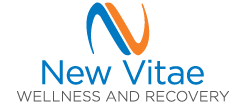Recovery from an addiction can be rather confusing for those who have not experienced alcohol and drug problems. During a recent group therapy session, one client used an analogy that I thought was useful. She said, “Treat yourself the way you would when you have a cold…in a kind way…nurture yourself.” As is often the case, it takes time for the body and mind to heal from addiction. This can linger for many months. We call this post-acute withdrawal symptoms (PAWS).
Her statement that day created a lot of discussion in the group. Some noted the first way they had used to cope was to take more pills to self-medicate, but there was no ‘one-pill cure.’ A cold is viral and therefore has to run its course. Nonetheless, there are ways to lessen its impact before, during and after the ‘flare-up.’ Similarly, addiction has no ‘one-pill cure’ and there are ways to lessen its impact during early recovery.
The Cold Season/The Drinking Season
I was intrigued with the group discussion and utilized the internet to find advice on managing a cold. My eye jumped to the following link: “Is Everyone Sick Around You? – Florida Orange Is Here To Help. A Healthy Immune System Is A Great Defense Against Cold Season.” I connected with the idea of a healthy immune system. We all have moments when our immune system is weakened; however, when someone has a medical condition, the immune system is compromised and the person is more susceptible to flare-ups. For the addict in recovery, he or she experiences cravings when weakness when dealing with challenging emotions. These are symptoms that can lead to the flare-up or relapse. Therefore, it is important to develop a healthy ‘immune system’ to defend against relapse. Of course, as with any illness or condition, one must note the most common time; therefore, the ‘Cold Season’ is comparable to the ‘Drinking Season’ which includes rites of passage like turning age 21, holidays, and anniversaries.
April is Alcohol Awareness Month, so I’d like to share some statistics then discuss ‘the immune system.’ Alcohol is legal at age 21 and it has become a ‘rite of passage’ for many. I am working with a young adult who just turned 21; as part of our counseling sessions, he shared of the social pressure of ‘getting wasted’ on one’s 21st birthday. ‘Getting wasted’ is not a mark of fun or celebration. Unfortunately, many start drinking much younger. According to Mothers Against Drunk Driving, over 40% of all 10th graders drink alcohol.
Other popular times for drinking include holidays and anniversaries. For the person who has an addiction, any day, any time will suffice to drink or drug. Whatever the ‘reason to drink’, drinking too much will increase risk for short- and long-term health risks. Consequently, having various ways of counteracting risks is important to decrease chances of flare-ups or relapses.
Sajeda Bhallo, MS, CADC, CPRP
Therapist, New Vitae The Mitchell Clinic






